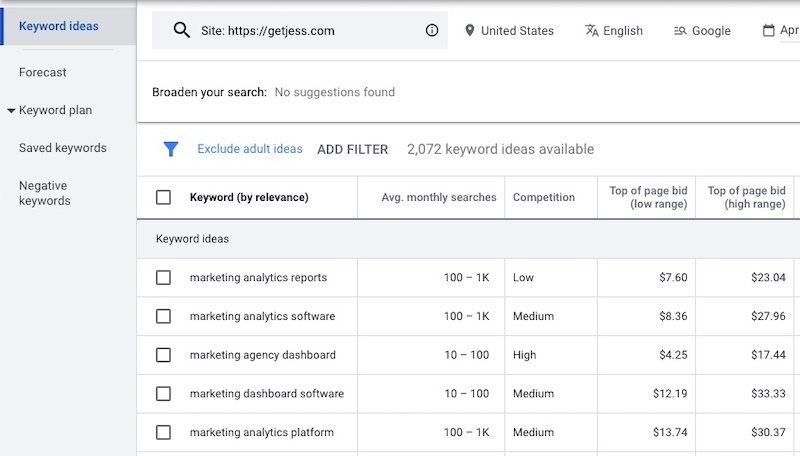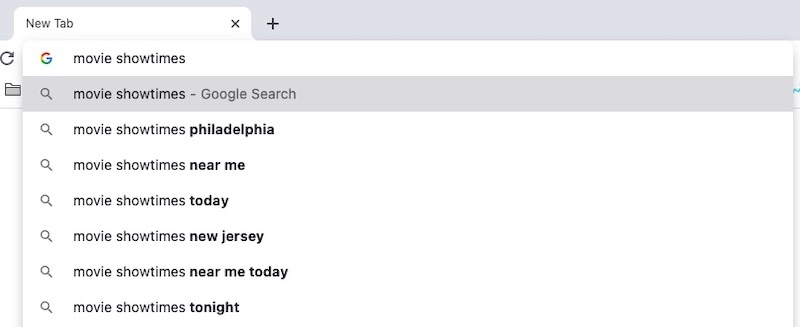It wasn’t so long ago that if you wanted to spread the word about your small business, you placed an ad in the local newspaper and hoped for the best. But traditional marketing was very expensive and (unless you offered a coupon) there was no solid way to track its return. In the current digital marketing world, your small business can build online marketing campaigns with measurable results for little or no money. One of the best ways to lead customers to your website is to choose the right Search Engine Optimization (SEO) keywords – which you can easily do!
In the days of traditional marketing practices, many experts would recommend that your small business purchase a mailing list to spread the word to potential customers. It was very costly to purchase the list, pay someone to design a mailer, pay for postage and, in the end, probably experience a poor ROI. With keyword marketing, you can reach those who are actively searching for businesses like yours. And the best part – you can find the right keywords for little to no expense!
“But I Don’t Know How To Choose The Right SEO Keywords!”
That’s what the big competitors want you to think! Although national brands can staff their own marketing departments and large businesses often rely on agencies to act as their marketing team, those may not be realistic options for your small business. Don’t worry. It may sound like a formidable – and expensive – challenge, but finding and choosing the right SEO keywords to incorporate into your website content is easy with a little bit of knowledge and the tools that are currently available.
Three Tools To Help You Find The Right Keywords
1. Google Ads Keyword Planner
One of the best free keyword research tools currently available is Google Ads Keyword Planner. Our previous blog will give you in-depth details on how to sign up for a Google Ads account to access their keyword planner and how this free tool can help your keyword research, but we’ll provide a brief overview here as well. There are several ways to find keywords in Google’s planner, but one of the most effective ways is to enter your website address and select “Get Results.” Drawing from its extensive knowledge base of keywords used during customer searches, the planner will present a list of keyword ideas based on your website’s information and current content.
2. Jess SEO
Jess is an affordable DIY SEO platform that puts quality SEO and keyword research help within reach of most small businesses. Unlike other SEO software tools, Jess is designed for novices and tells you exactly what to do next. By providing a list of keywords for many business types, Jess makes the process quick and easy to know where to start. No need to learn a confusing tool or to worry about choosing the wrong keywords. Businesses can even enter their competitors’ websites for other keyword ideas.
Automate Your SEO With Jess
3. Google Search
Another easy, free way to quickly discover keyword ideas is to conduct your own Google search and use the automatically generated suggestions as the foundation for building your keywords for SEO. You can do this by visiting Google.com and typing a few words or phrases that are relevant to your business in the search bar. You can then use the search results to form your keywords. Example: Type “movie showtimes” in the search bar; Google will use its knowledge base to predict the exact intent of your search and offer a list of suggestions related to those words (movie showtimes near me, movie showtimes today, etc). Also, at the bottom of the search results page, Google provides a list of keywords related to your original search.
How Keywords Build Audiences
Now that you know how to find keywords for SEO optimization, let’s see how choosing and using the right keywords can increase your search presence. When you give driving directions to someone, you may find that it’s more effective to use landmarks (“Turn right at the fast food place, then turn left when you see the gas station”) than it is to give highly detailed information (“Turn right on East 17th Street and stay on that for a half-mile until you get to State Street. Then you turn left.”). Keywords are essentially directions that drive traffic to your website. Unlike our physical driving directions example, your keywords have to be specific – and not generic – to successfully lead interested audiences to your website.
To demonstrate the effectiveness of highly targeted keywords for SEO, let’s take a look at a couple of small business scenarios:
Ike’s HVAC
“Ike’s HVAC” specializes in home heating and air conditioning repairs and maintenance in Philadelphia. Each spring, they typically see an increase in air conditioning maintenance as customers want to ensure that their units are in great condition before summer strikes. Last year, they experienced a lull in appointments due to a combination of the pandemic and the loss of several clients who closed their businesses. Looking to gain new customers and convert new local residents who are interested in having their AC units serviced, “Ike’s HVAC” will need to optimize their website with lots of Transactional Keywords.
Much like their name suggests, Transactional Keywords represent a searcher’s intent to purchase products or services. To find those customers who are actively searching for AC services, “Ike’s HVAC” will need to use Transactional Keywords that are more specific in scope (AC maintenance in Philly area) and avoid using Informational Keywords (what do AC repairs cost). Informational Keywords are very generic, incredibly broad, and cast too wide of a net for searchers. Local businesses should select keywords that include their geographic service area, but will also benefit from Google’s ability to localize results if someone types in a keyword without the geography (AC maintenance). If “Ike’s HVAC” relied solely on Informational Keywords, their website might get traffic, but not traffic from people looking to buy.
Resources Software
“Resources Software” is a start-up company that specializes in providing small businesses with affordable human resources management software. They’re based in suburban Chicago, but they want to reach any small business in the U.S. that is actively in need of HR software. “Resources Software” can benefit from using a combination of Transactional and Informational Keywords.
Since theirs is a niche software (HR), “Resources Software” can incorporate Informational Keywords into their website’s content (HR software, HR software programs) to create awareness of their brand. “Resources Software” can also use those Informational Keywords to create Transactional Keywords by adding more detailed information (HR software programs for small businesses, HR software programs for life insurance agencies, etc). By using both types of keywords, “Resources Software” can build awareness for those doing broad searches for HR software information and the specific industries who need HR software for their company.
Put Your Keywords To Work
Now that you know how to find keywords and select the right keywords to use for your SEO purposes, it’s time to put them to work! Just remember: SEO keyword optimization is not like a media blitz. It takes time to do its job effectively and it also requires occasional fine tuning and updating. You won’t get 100 new customers overnight – but you will reach the people whose intent is to find companies like yours so they can purchase your specific goods or services. A particular keyword may have a low monthly search average, but the people who are using that word or phrase are more likely to convert.
Once your SEO keywords are live, you’ll need to know how they’re performing. Our Jess SEO tool also generates reports with highly detailed, yet accessible, results tracking. This allows you to monitor your keyword rankings and analytics so you’ll know your SEO is working. Interested? Try a 14 day free trial of Jess SEO. No credit card required.
For more tips on SEO Keywords, subscribe to our newsletter.





0 Comments